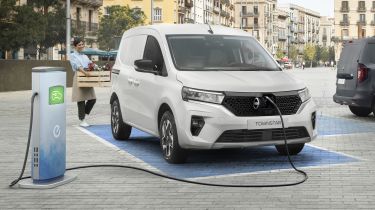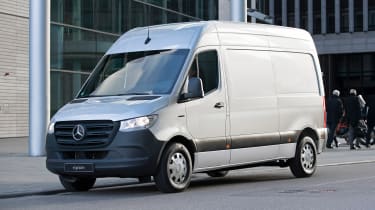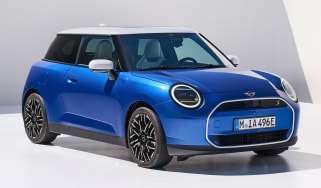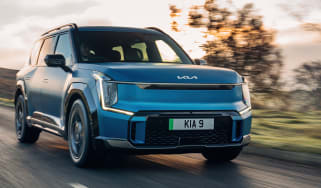Would an electric van suit your business?
Think an electric van will boost your business? You may be right. Before taking the plunge, read on to make sure you know the crucial questions to ask

There are over four-and-a-half million vans, or light commercial vehicles, on UK roads. They form an essential part of the UK economy, used by businesses of all kinds. For now, the majority of those vans are powered by diesel engines – but as emissions rules begin to shift, electrification is gaining traction.
Electric vans are slowly growing in popularity, with more manufacturers introducing electric commercial vehicles every year. Electric vans offer some key benefits over their combustion-engined counterparts, but before you make the jump, it’s important to think about whether an electric van suits your business.
What to consider when you're thinking about buying an electric van
The first thing to think about is the kind of driving required from the van. Does your business regularly require drivers to do long drives on motorways, or are they mostly used in the city?
In general, electric vans are limited in their range – more so than electric cars. There are two very important reasons for this – load volume and payload. Batteries are heavy and take up space, so electric vans use smaller ones in an effort to balance range with practicality. The result is that many early electric vans had ranges of less than 100 miles, although more recently introduced models can manage 150-200 miles or more. However, they make most sense for shorter journeys and local use – especially when fully loaded.
The next thing to consider is the kind of equipment and payloads you will carry. Until recently, light-goods vehicles were limited to a 3,500kg gross vehicle weight (GVW) or maximum authorised mass (MAM). This is the maximum load that can be carried on the road, including the vehicle's own weight.
Because electric vans tend to be heavier than their petrol or diesel counterparts, the Government increased the maximum weight limit for electric vans to 4,250kg. However, it's important to remember that electric vans will return less range when operating at maximum capacity. If you can, try to test drive a van with a full payload to see whether it's right for your business.
Finally, think about where you'll be able to charge your electric van. Are the vehicles kept at an employee's home overnight, or at a depot? Will you have access to an electric charging point overnight? It makes little sense to have an electric van if it isn’t topped up in the morning ready for a day’s work.

Benefits of purchasing an electric van
There are several benefits of going electric. The first is lower running costs: even the most frugal diesel van cannot match the bang-for-buck offered by an electric van. A full charge of an electric van will cost a few pounds in electricity, a feat that no internal-combustion model can compete with – especially in these days of high fuel prices.
Elsewhere, while the initial purchase cost is usually higher, electric vans have fewer moving parts and so should be much cheaper to service and repair, further lowering a business' expenditure. You also benefit from the Government’s plug-in vehicle grant, which covers a percentage of the purchase price for qualifying vans, up to a maximum of £5,000 (or £2,500 for smaller models). Electric vans also face no vehicle excise duty (VED) for the foreseeable future and are Congestion-Charge-exempt until 2025.
Most Popular

Morgan Super3 XP-1 is an electric three-wheeler

MINI Cooper Electric: pricing and specs for British-built electric supermini

